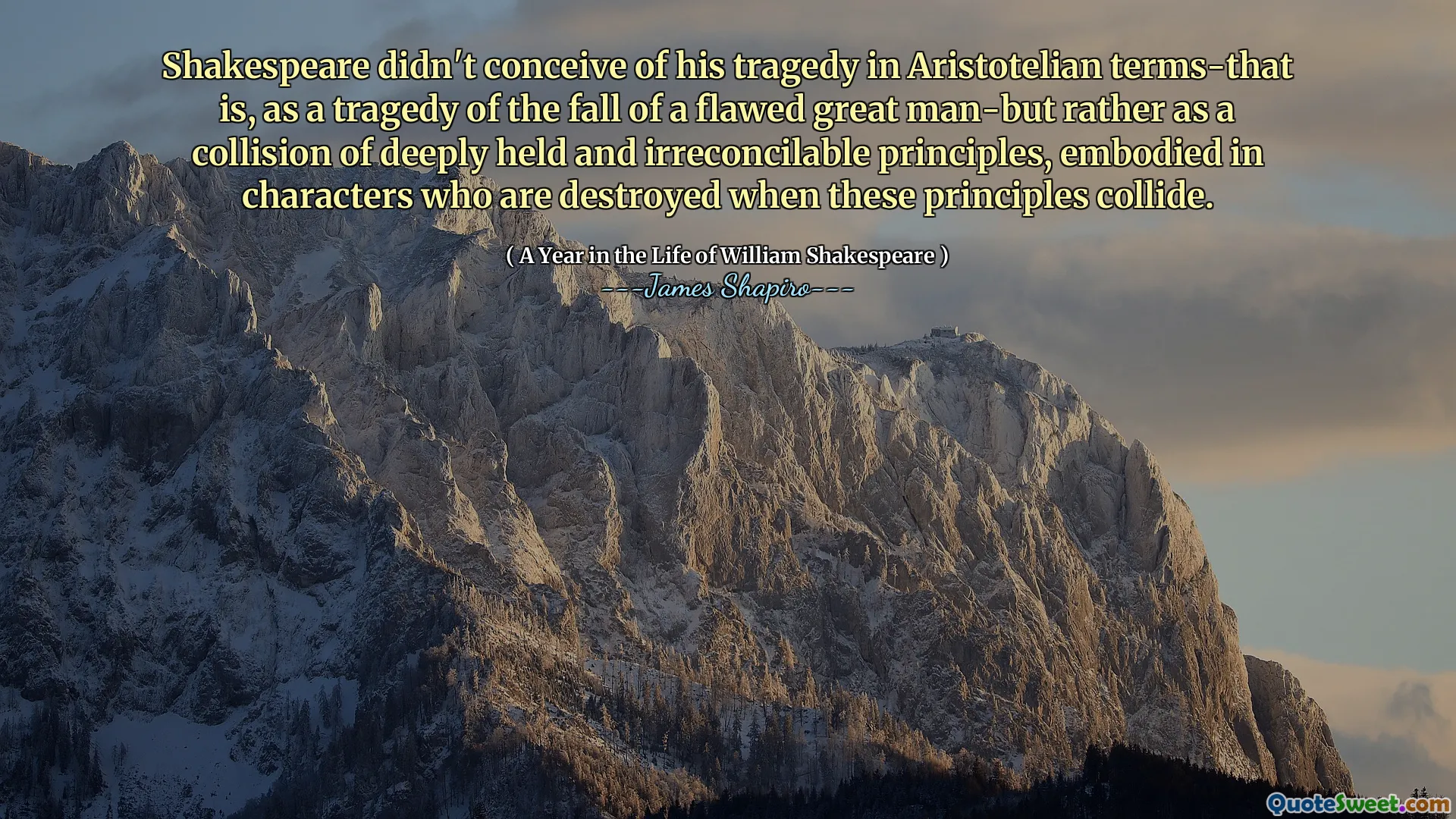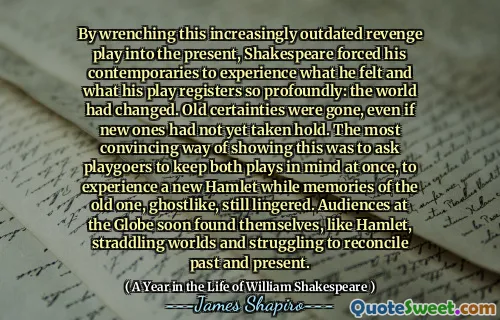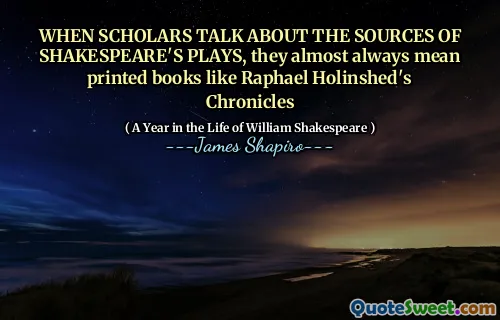
Shakespeare didn't conceive of his tragedy in Aristotelian terms-that is, as a tragedy of the fall of a flawed great man-but rather as a collision of deeply held and irreconcilable principles, embodied in characters who are destroyed when these principles collide.
Shakespeare's approach to tragedy diverges from classical Aristotelian definitions, which typically focus on the downfall of a great man due to personal flaws. Instead, he explores the conflict between opposing values that are deeply ingrained in his characters. This struggle leads to their destruction, highlighting a more complex understanding of human conflict beyond individual failings.
In Shapiro's analysis, Shakespeare is depicted as an innovator who delves into the intricacies of moral and ethical collisions. His tragedies reflect the societal and ideological battles of his time, suggesting that the essence of tragedy lies not solely in personal flaws but in the intense clash of conflicting principles that drive the narrative and ultimately lead to catastrophic outcomes.









